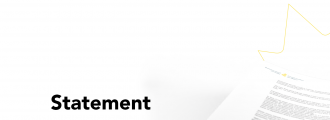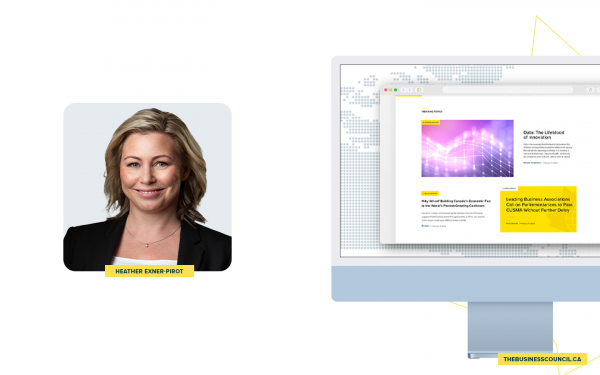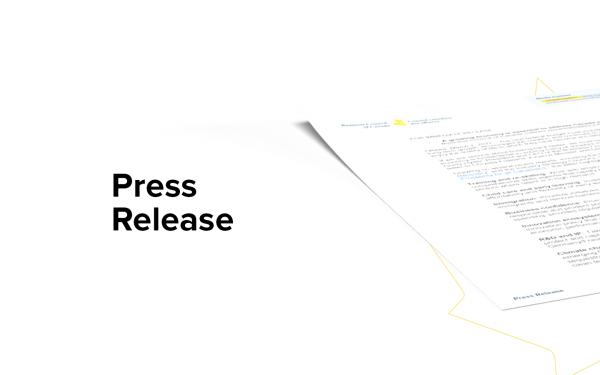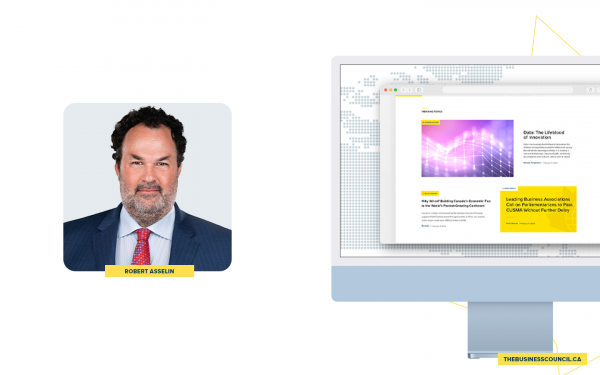The companies that manufacture were able to quickly pivot to make masks, respirators … hand sanitizer
In light of the COVID-19 emergency, we’ve temporarily suspended our regularly scheduled series of conversations with Canadian CEOs. But we’re not going away. Instead, we’re going to pivot to the health emergency itself. We’re going to explore the impact on companies and workers across the country. And we’re going to find out how business leaders are responding to crisis.
“The companies that manufacture were able to quickly pivot to make masks, respirators … hand sanitizer.” Jerry Dias, president of Unifor, discusses the mobilization of the manufacturing sector in the COVID-19 pandemic, the role of essential workers, and plans to reopen the GM plant in St. Catharines, Ontario.
Latest Podcasts
Transcript
Goldy Hyder:
Welcome to Speaking of Business. I’m Goldy Hyder of the Business Council of Canada. For the past few months on this podcast, we have been discussing the COVID-19 crisis and the impact it is having on Canadian businesses, employees, and communities. The pandemic is affecting everyone in different ways and we have heard a wide range of experiences from factories retooling to provide medical supplies, to employees in the field working to keep us connected and our homes heated. To businesses, supporting communities through charitable giving, to truck drivers, powering through adversity to deliver food and supplies. My guest today represents more than 300,000 workers across Canada. As the president of Unifor, Jerry Dias oversees Canada’s largest private sector union. He has seen the impact of this crisis across many sectors of this Canadian economy. I’m so glad to have you on the podcast Jerry, thanks for doing this.
Jerry Dias:
Goldy, always my pleasure.
Goldy Hyder:
We’re speaking on May 7th, so situate our listeners. So I want to start by looking ahead to May 11th, because that’s when you are staging the re-opening of the GM plant in St. Catherine’s with 300 volunteer workers. What steps are you taking to ensure their safety?
Jerry Dias:
Well before workers can even enter the plant, before our members can enter the plant, they’re going to go through a video screening, which will take their temperature. It’ll take about eight seconds, so if there’s any elevated temperature at all, will be taken aside and taken down to the health centre and then sent home. There’s going to be the personal protective equipment, the hand sanitizer, we’ve been working on the plant since their last day of work, which was the 20th of March, making sure that we’ve modified the facility so that there’ll be social distancing.
Jerry Dias:
We’re very cognizant of people’s nervousness, as they should be. St. Catherine’s is a small community, we’re seeing what’s happening in long-term care facilities all across the province. We’re knowing how this pandemic has impacted people personally, members of their family. So we are viewing this and approaching this with the greatest of caution. We’ve had all hands on deck since the plant went down, like I said, on the 20th of March. So my health and safety activists in my local union leadership are comfortable that everything can be done, but we’re going to take this one step at a time. It will be a very, very slow process as we re-open.
Goldy Hyder:
Indeed. You mentioned caution and safety, and I think, business and labour have been very aligned on this. In fact, you and I, around the same time and we spoke back then, you at Unifor really sounded the alarm about COVID-19 early in March. You wrote to the labour minister here in Ottawa as well as our employment minister asking for emergency support for workers affected by the crisis, by the virus itself. So what’s your assessment of the federal government response to the crisis?
Jerry Dias:
I think the key piece is that the federal government, when they make an announcement, never make it sound as if that’s their final position and that’s definitive and that’s that. They understand that it’s been changing and changing on a regular basis. So they have to modify what the challenges that they’re faced with each and every day. We got out early, you’re absolutely right, because we knew that the Canadians that would be negatively impacted the most, are those that are at the low end of the wage scale. What was interesting and important was when the government started to deem who were essential workers. It was really a wake up call, I will argue, for the business community and for people in general, that really under-appreciated so many of those jobs. So for example, I’ll talk about the workers at the long-term care facilities, the personal support workers, those that work in the cafeterias or those that make the beds.
Jerry Dias:
These are people who are minimum wage or at the best, not very high up the wage scales. Yet, they just didn’t get the type of respect that was necessary. Grocery store workers that at one time were good, well paid, middle class jobs, today they’re paid so poorly. Women that work in women’s shelters, transit drivers, you can start to walk through, airline workers. So many people who are doing so much today that we’re depending on so much today, that were paid so little. So we got over early in the game and I’m glad to see that the government has responded. Some mistakes have been made for sure but, ultimately, I’d like to concentrate on the good things and the fact that people are listening.
Goldy Hyder:
I think those are very valid points and governments obviously dealing in an unprecedented crisis as well, and they’ve moved pretty quickly on a number of things. I think a good insight on your part about how it’s never final. It’s always hope that if you need more, more will be available. And I think people are looking for that reassurance. Let’s talk about where we find ourselves now, which is, as you know, provinces are looking to slowly restart the economy, obviously mindful of health guidance, and doing so as safely as possible. What are you looking for as parts of the country now tiptoe their way back to a restart of their economy?
Jerry Dias:
Well, we need to, and it has to be a tiptoe process. There can’t be a mad rush, like as if somehow it’s going to be business as usual, because it’s not. We can’t allow greed, the crowd, the work that needs to be done because the last thing that we can do is rush into a bad decision, have everybody rushed back to work, throw caution to the wind. And the next thing you know, we hit wave two and all of the good work, all of the self-isolating, all the great work that Canadians have done, all of the effort that the essential workers, the fact that they put their lives at risk each and every day, we can’t allow that incredible work to somehow go to waste because we’re rushing back and we’re throwing caution to the wind. So it has to be a staged approach and workers have be given the tools to work with.
Jerry Dias:
I’m deeply concerned about that because here we are at this point in the pandemic and I can easily argue that the personal protective equipment that are needed by the essential workers still aren’t readily available. I think about the workers at long-term care facilities that are going back to work after they tested positive. Why? Because there’s a shortage of personal support workers. Why? Because of their low pay. Why? Because of their terrible hours, precarious, part-time, casual workers working in two, three homes. So, people are scrambling to a certain extent to open back up shop, but any quick moves that put workers lives at risk, should and will be met by a strong resistance from working class people.
Goldy Hyder:
That’s absolutely essential. No question. We’re hearing that at every level Jerry, in most of my podcasts. How is it that we were so vulnerable in terms of our PPEs? The testing issue is obviously a critical one as well. Tracing is coming up now, it’s being raised. There’s a long ways to go here to get the confidence back of Canadians. Jerry, you and I are really proud Canadians, immigrants, Italian and East Indian backgrounds and we’ve talked about our love for the country. What are you learning about Canada in terms of how we’re managing this crisis? Tell me the good and the not so good, if you will.
Jerry Dias:
Well, the good, I think, is highlighted by the incredible education system that we have in place, the incredible work ethic, our commitment to social value. So I think the strength of our nation have really come forward because we really are a carer nation and we really do have a social conscience. So all of that is playing out but I think what it has shown us, is we have an inherent inferiority complex as it relates to running our economy. By that I’m saying, this pandemic has shown how self-reliant we are to other countries around the world. This whole global supply chain, this whole quest to chase the lowest cost, the whole diversification of our economy as it relates to the outsourcing our economy, I think, shows how alone we are. We don’t do anything. We don’t make masks. We don’t make respirators, ventilators and personal protective equipment.
Jerry Dias:
When we were at the time of our most need, we were the most unprepared because we have outsourced our entire economy. So here we are a nation rich of natural resources, raw materials, we are gifted nation, a nation surrounded by three coastlines of water. We have it all. Yet, we are not in control one iota of our economy. We ship our raw materials around natural resources to other countries across the world and we buy finished products. We’re reliant on everybody. So the weakness that this has shown us is how our global reliance will, in essence, has been our downfall.
Jerry Dias:
Listen, I’m a trader. I really am. 85% of everything my members make is sold internationally. So I believe in trade, but I believe in fair trade. I don’t believe in one way trade. I don’t believe in this chasing the lowest common denominator because somehow that’s better for us. I think a lot of the business community is learning it the hard way as well, because as they’re looking to ramp up, they relied so much on components from other countries that are still struggling themselves. That their ramp up to some sort of normalcy is going to take a lot longer because of their reliance on others. So I think this pandemic has shown everybody, shown Canada, how unprepared we are but I think it showed the business community that followed this globalization model and outsourcing model for so long, how vulnerable they are as well.
Goldy Hyder:
Well, it’s certainly a period of retrospection and reflection and it’s on all of us. I think each one of us as Canadians, because we say that about both business and labour, but the customer and the consumer is always king, right? What do they want? I want the best product at the cheapest price. So there’s inherent conflicts for society that we need to think through. My theme for this talk with you so far, has become really about being better, that we can be better in every way and working together will help get us there. I want to ask you, what are you hearing in terms of best practices? I assume you talked to counterparts in different labour organizations nationally and around the world. How do we fare in terms of how other countries are dealing with this issue and the labour movement?
Jerry Dias:
I think we’ve responded quite well because of our ability to adapt and that goes back to that high level of education of Canadians. What people should have also learned, is that the importance of the manufacturing sector because I am forever debating, Goldy, about what the auto industry or the aerospace industry or any key manufacturing, when government step in to assist, there’s always this cry about how they’re dinosaurs, let the industry go. That’s all about the gig economy. It’s about looking at the 21st century. Yet, when we’re in trouble, who bailed us out? The Fords, the General Motors, the auto parts companies, the auto industry, the aerospace industry, the companies that manufacture were able to quickly pivot to make masks, respirators. My Hiram Walker plant is now making hand sanitizer, I can walk right through. So the industries that people will continually argue are going the way of the dodo bird, are the ones that we relied on.
Jerry Dias:
So if I compare what we were able to do here, as opposed to other nations, we were able to react because we still have a manufacturing sector but this once again has to be a lesson to everybody. We’ve lost 560,000 manufacturing jobs in the last 10 years and it took us longer for react because of that. But we still have a strong foothold in place, in order that we were able to have other companies step forward. The other way of looking at it is at the end of the day, General Motors is not going to continue making a million masks a month, they’re going to start selling vehicles. Ford is not going to continue to make face shields, they’re going to build engines. In Windsor, I can walk right through the different industries that have diversified. Those are short-term fixes to get us through the pandemic, but then we need long-term solutions in order to make sure we’re no longer vulnerable.
Goldy Hyder:
Those are all great points. I mean, we’ve been criticizing Canada for having very low productivity, not able to scale up very well. I think that this moment that we find ourselves in and opportunities for people like you and I and government and others to actually work collaboratively together to build an economic strategy for the future. We don’t even have an industrial policy in Canada. So, your comments are fairly clear and well-taken. I just think that it takes leadership and hopefully what you’re talking about here will be able to spearhead some conversations about the long-term. Now, before I go there, let me ask you about, this podcast is largely about leadership. You’re a leader, you’ve got 300,000 members. It’s not your first rodeo in terms of a crisis but certainly nothing of this magnitude. What are you learning about yourself? What does it mean to be a leader in a crisis?
Jerry Dias:
Well, it means you better make the decisions, that you’re going to have to consult with people, but at the end of the day, the buck stops here. I’ve got an incredible team of which I rely on. We spend a lot of time getting inside information as it relates to individual sectors, we’ve had to concentrate significantly on the impact to our members. We spent a lot of time dealing with our members in different sectors that have been largely ignored by the general population. But so this is a time to elevate some of the important issues that have been neglected. I sent a letter to Doug Ford in November, suggesting and challenging him to spend one shift with me in a long-term care facility. And then I reached out to Doug again in February and I said, Doug, let’s spend one shift at a long-term care facilities, so that you’ll understand. He didn’t respond.
Jerry Dias:
Now today, Doug is spending a lot of time talking about long-term care facilities and the respect that those workers deserve and how we have left our parents, our elders, how we’d left them so vulnerable because of the lack of decisions that have been made over the years. So I’m not saying this to criticize him. I’m saying this because it’s an eye-opener for a lot of people. So leadership is about identifying our weaknesses and pushing those with the power to make differences for the long-term. We need to change the regulations in the healthcare sector across this country. It’s my job to speak up for those workers, for residents in general, and it’s my job to speak up for a whole variety of initiatives that I think that have been ignored. So leadership is about not being afraid to make a mistake but leadership is about being comfortable, articulating your point of view, even if it’s not 100% popular, 100% of the time.
Goldy Hyder:
Well, you’re a terrific example of that Jerry. I think as you and I have seen, we can agree to disagree on things. I may disagree on a thing or two you just said there about our premier but, in general, what we’re seeing here is leadership of different kinds across the country. You’re doing your job as a leader of Unifor and your members are also doing things for the community as well. You pointed out the response by industry in terms of resources and factory re-tooling and incredible acts of kindness that are taking place. How are you responding at Unifor to help the community?
Jerry Dias:
I’ll give you an example. Our members in Regina, Saskatchewan, they’ve been locked out since the 5th of December by the Co-op Refinery. They just donated $30,000 to the food bank in Regina. Within Unifor, we have our social justice fund where we have been spending a lot of time, energy and money on women’s shelters, food banks. We have been contributing to a variety of domestic and international causes. Why? Because it is critical today. So we understand that as a union, we just can’t be about collective bargaining. We have to understand and recognize our social responsibilities and the role that we play in communities. So we have elevated that during this pandemic and that’s not going to stop when we get out of the pandemic. We’re a social organization, we understand our responsibility. We understand our responsibilities to the communities that we live in and we’re playing an active role when our members and our communities need us most.
Goldy Hyder:
This crisis, as you said, has shown a very, very bright light on our essential workers, many of which, belong to your union and others. It hasn’t been said enough, thank you. Thank you for everything that all of those folks are doing and you’re right. We need to look at ourselves as we come out of this as to how we can be better and make sure we don’t repeat some of the situations and policies that got us into the situation that we’re experiencing and some of the system, particularly healthcare and others. So I applaud you for your passion, for joining me, for raising issues that you do, and for all the work that you do on behalf of Canada. Jerry, thanks for doing this.
Jerry Dias:
Pleasure is mine. Thank you very much Goldy, have a great day.
Goldy Hyder:
Jerry Dias is President of Unifor. I hope you will take the time to listen to more of our conversations about the COVID-19 crisis. You can find them all wherever you get your podcasts, or simply go to our website, SpeakingOfBiz.ca, that’s biz with a zed. Until next time I’m Goldy Hyder, thanks for joining us. Be well, be safe.









